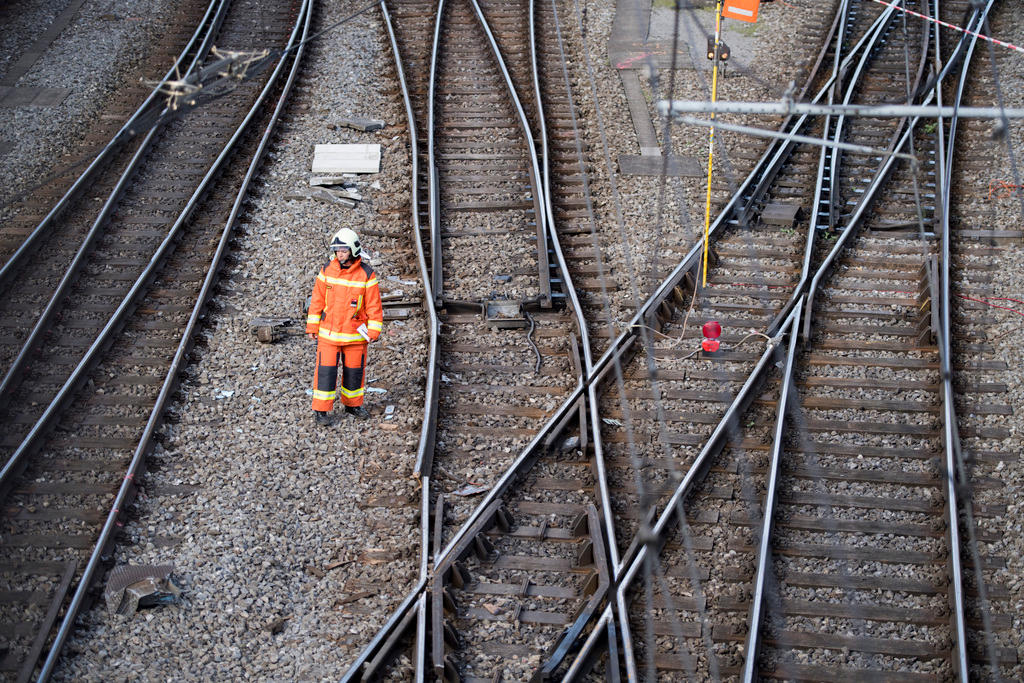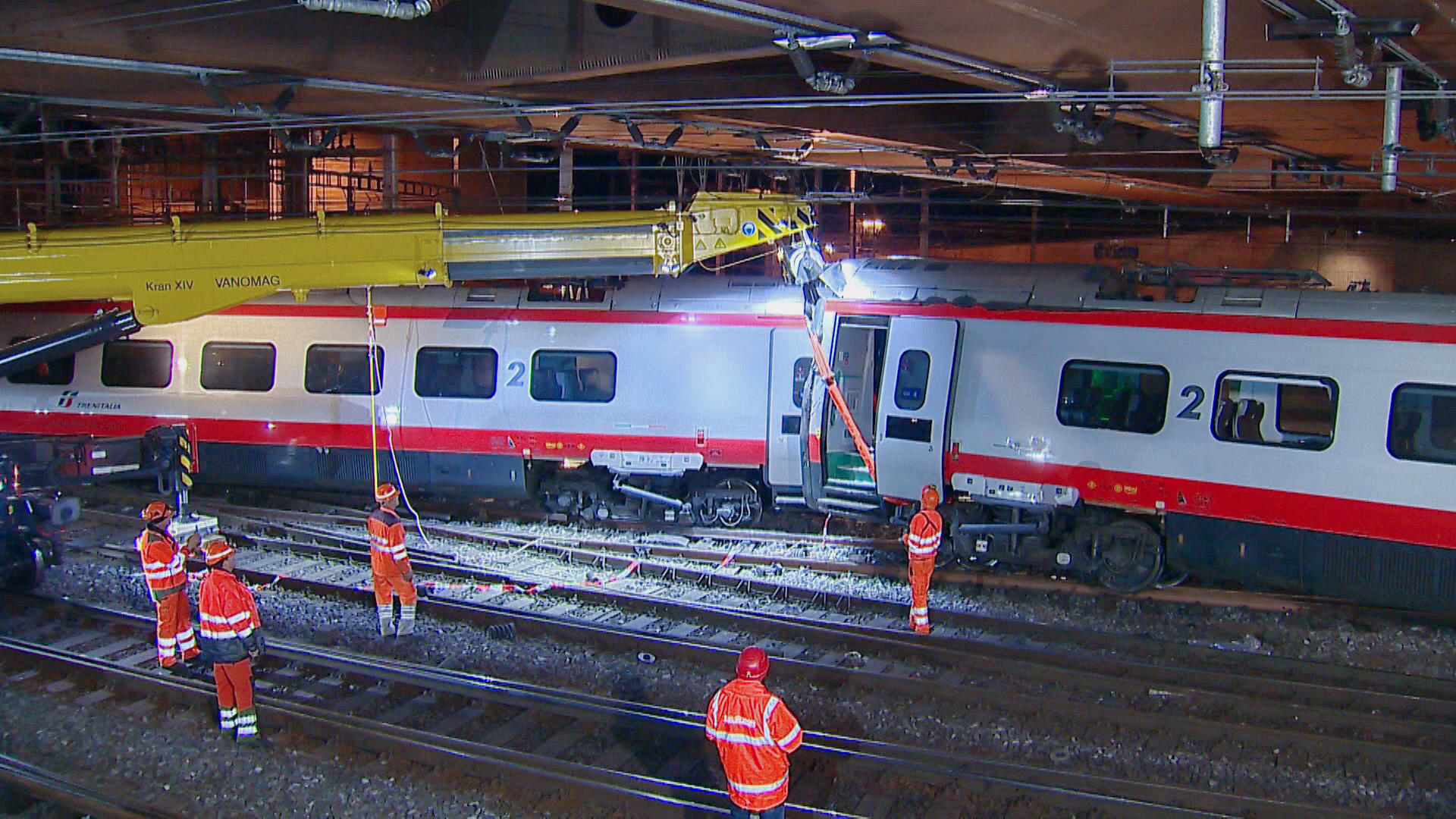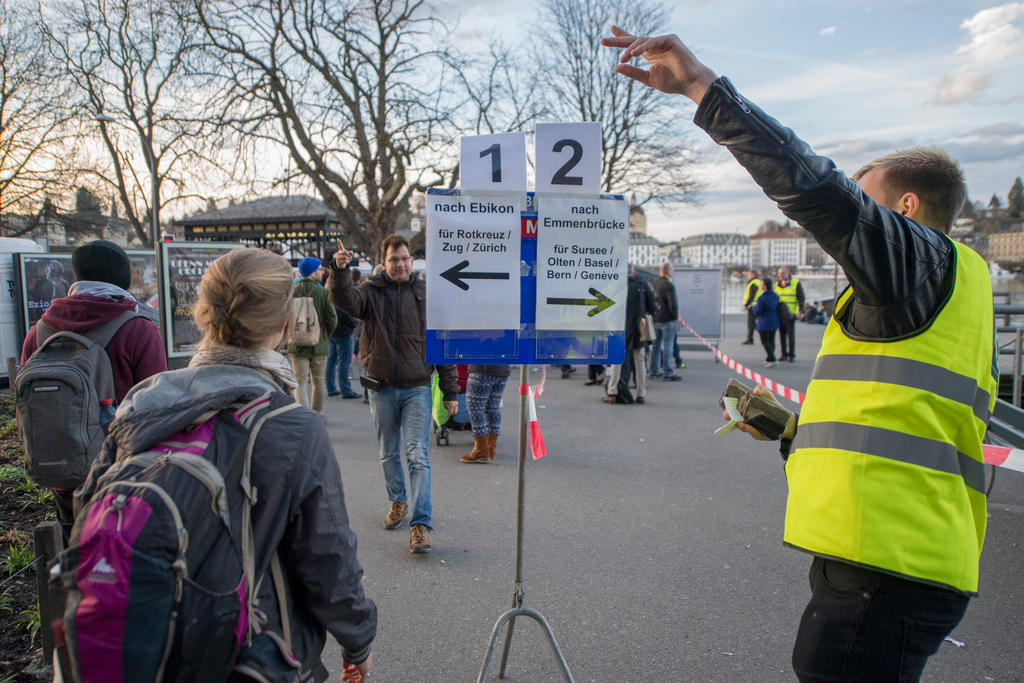
Train disruption throws daily life off track

Under what passes for normal in Switzerland – highly precise and efficient transport – more than 90,000 people a day typically hurtle over the tracks in Lucerne, making it the nation’s sixth-busiest rail hub. When things go awry, it can be disorienting.
With its central location, postcard-ready surroundings and a large shopping centre open every day of the year, Lucerne’s train station ties with Geneva for the third-most users, 163,000 a day, behind Zurich and Bern (439,000 and 269,000 respectively).
So when a Eurocity train carrying 160 passengers from Milan to Basel partially derailed on Wednesday afternoon, causing minor injuries to six people, the disruption had a huge ripple effect. Travellers throughout the area had to scramble, and the train station is set to remain closed until Monday morning at the earliest to clear the area for needed repairs.
“In Switzerland, we’re used to luxury. Everything works really well. And the moment there’s an accident like this, the system seems to collapse and everyone gets upset,” said Fatima Rindlisbacher, of canton Aargau, who frequently travels to Lucerne. “We’re just spoiled. Other countries don’t have reliable services like this and we can’t cope when things don’t work.”

More
Lucerne station remains blocked
Several carriages of the Eurocity 158 jumped the tracks near the station. One overturned on its side and knocked down a pylon that supplied power to the station, Swiss Federal Railways reported. Three Italians, two Swiss and a Macedonian were treated at the hospital for minor injuries.
Federal and local authorities have joined railway officials to investigate the cause of the derailment. In the meantime, there are no more intercity or regional train services operating via Lucerne, creating a bottleneck for trains in the region because of the way the system is designed. The Federal Railways advised people to avoid travel to the central Swiss city or to take a local bus.
Heavy traffic clogged the numerous minor roads in the region and the main roads into Lucerne, the A14 motorway between Lucerne and Zug. Additional buses are helping fill the gap. Dozens of helpers were drafted to advise customers on the adjusted timetables, said railways spokesman Daniele Pallecchi.
“Everything is in a state of flux until Sunday evening,” he told swissinfo.ch.
Meanwhile, private citizens have banded together to offer stranded commuters rides in their cars using the hashtag #MitfahrenLuzern, or “ride along Lucerne”, on Twitter.
PLACEHOLDER
One user wrote, “whether through the railways’ replacement buses or through ‘ride along Lucerne’, the reaction that has emerged from this chaos is impressive.”
Ob Esatzbusterminal der #SBBExternal link oder #MitfahrenLuzernExternal link. Eindrücklich, was aus dem Chaos entsteht & wie die verschiedenen Dienste reagieren.👍 pic.twitter.com/VcIn1phWGaExternal link
— Melanie (@melanie9782) March 23, 2017External link
Complaints and praise
Toni Häne, the Federal Railways traffic director, told Swiss public television, SRF, a lot of infrastructure was broken. “About 400 metres of track have to be rebuilt, four points have to be replaced completely and two overhead masts have to be rebuilt,” he said. Two hundred tonnes of ballast must be installed in the track.
There were inevitable complaints. One daily commuter to Lucerne grumbled about the inconvenience of catching other buses and trains and rescheduling appointments, but he praised a train conductor who went easy on him for making a quick connection by jumping aboard a last-minute train without a ticket.
Others praised the Federal Railways’ response, saying things still seemed well-organised. Message boards, web pages and apps delivered information about how to cope with the situation. Fleets of workers in yellow jackets appeared on the scene, some drafted from French-speaking regions.
“You can always take other ways,” said Babacanli Alparslan, of Sursee, about 25 kilometres from Lucerne on the A2 motorway. “There are other options.”


In compliance with the JTI standards
More: SWI swissinfo.ch certified by the Journalism Trust Initiative





























You can find an overview of ongoing debates with our journalists here . Please join us!
If you want to start a conversation about a topic raised in this article or want to report factual errors, email us at english@swissinfo.ch.